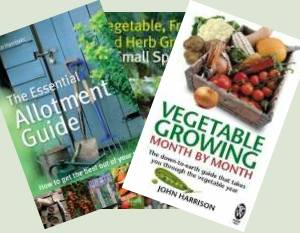How to Grow Blueberries and Bilberries – A Guide to Growing Blueberries and Bilberries
 Blueberries and Bilberries
Blueberries and Bilberries
Blueberries and bilberries are both acid-loving, moorland plants that seem identical, but in fact differ. Bilberries are a small shrub that grows in heaths and underbrush but is actually a cultivated hybrid of three native American species. Bilberry fruits grow as single, small, darker fruit than blueberries and are less juicy. Blueberries fruit in clusters, are of paler blue and usually larger size. The blueberry pulp is more of a white-green colour while bilberries have a deep purple flesh.
For the home gardener, cultivated blueberries usually fruit more successfully and are considered better value. Birds adore blueberries so netting is highly advised.
Blueberries are high among the super-foods which contain substantial levels of anti-oxidants. A few bushes tucked here and there will help you avoid having to pay high supermarket prices.
Blueberries are suitable for both ground and container growing depending on available space, and the leaves colour beautifully in autumn for an added feature.
Recommended Varieties
- Most blueberries are partially self-fertile but it’s better to grow at least two different varieties that flower close to the same time for best harvest results.
- Some varieties, such as Top Hat and Sunshine Blue, are more reliably self-fertile.
- Many varieties are available, ripening at different times with varying levels of sweetness.
- Bluetta, Herbert and Cluecrop are suitable for small containers, with the variety Top Hat particularly recommended. Garden grown plants are available in many sizes to suit most situations.
Pests and Problems
- Generally trouble-free. Check the pH levels of the soil after a couple of years, especially if watering with tap water. Rain watering is preferred.
- Sulphur chips will bring the pH level down again if it has risen.
- Birds adore blueberries and crops must be netted to protect berries.
Sowing and Growing
- Plant started plants in late autumn or early winter so the shallow roots can establish easily.
- To thrive, blueberry soil must be well-aerated, consistently moist (not soggy), very high in humus, and quite acidic – between 4 and 5.5 pH. If blueberries are planned for your garden, prepare the soil the season before you intend to plant.
- If planting in containers, use ericaceous compost and water retaining pellets. A mulch of a half inch of grit will help minimize water evaporation. Pots can also be sunk into the ground to retain moisture better.
- Rain water is preferred to help maintain soil acidity. Tap water will push pH levels back to alkaline which locks nutrients and causes plants to struggle.
- Feeding is not necessary but if plants appear a bit pale or spindly, use a half-strength ericaceous feed or chicken manure pellets.
- Blueberry plants need several years to mature for maximum fruiting so those wishing early crops should plant 2-3 year old plants. Once berries begin to form, net against birds who will strip the immature crop bare.
- Light, late winter pruning is recommended. Remove only one or two older stems to encourage new growth, remove any crossed or broken stems, and tip prune new shoots to encourage more side shoots.
- Bilberries are rarely grown as cultivars but usually fruit is picked from wild plants.
Harvesting, Eating and Storing
- Blueberries ripen over a period of time so pick regularly once the fruits are a deep colour, are soft and come off the stalks easily. If you have to pull the berry, then it’s not quite ripe.
- Blueberries will keep for about a week in a cool place. They easily freeze with no added sugar needed
- Raw bilberries are rather acidic but once cooked with sugar make a delicious jam, pie filling or compote.



